
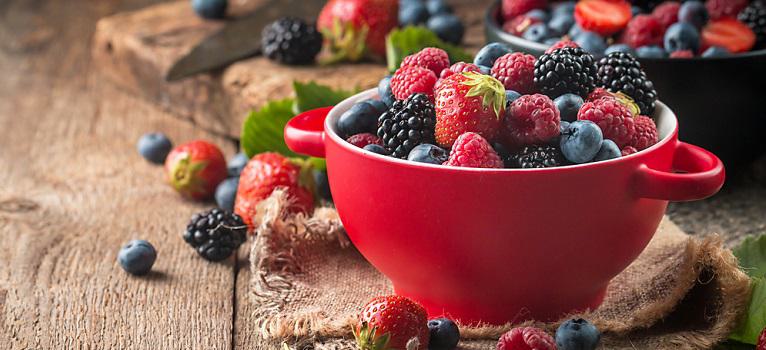
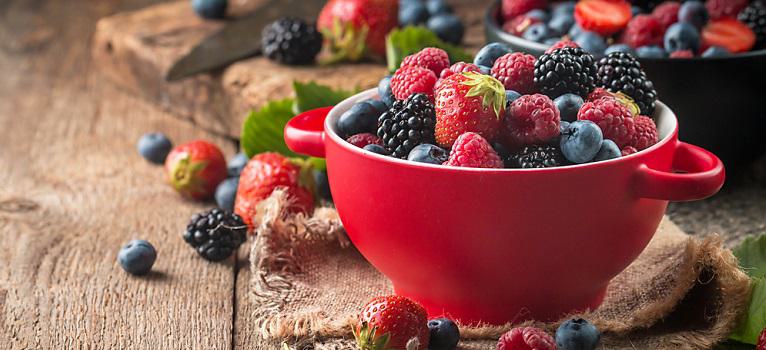
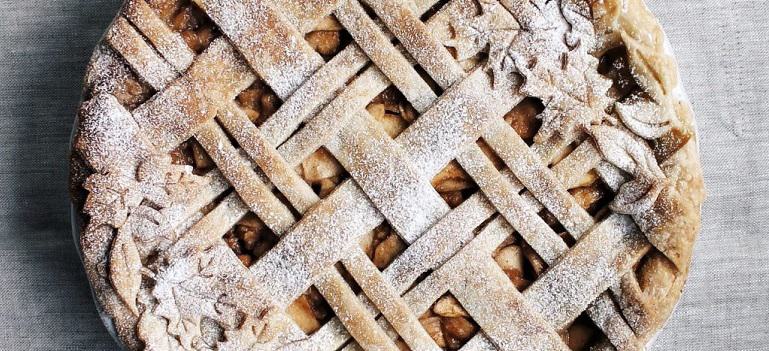 While apples may look beautiful when mixed with other foods in your fruit bowl, you shouldnt store other fruits near apples if you want them to last. When ripening, apples give off ethylene gas. Though this gas is not harmful, it can cause other foods to ripen/rot more quickly. To keep your fruits fresh, we recommend storing apples at a distance. If your apples do start to over ripen or get soft, don't throw them out. Cook them instead! Soft apples taste delicious when baked into an Apple Pie recipe like this one, or when turned into applesauce!
While apples may look beautiful when mixed with other foods in your fruit bowl, you shouldnt store other fruits near apples if you want them to last. When ripening, apples give off ethylene gas. Though this gas is not harmful, it can cause other foods to ripen/rot more quickly. To keep your fruits fresh, we recommend storing apples at a distance. If your apples do start to over ripen or get soft, don't throw them out. Cook them instead! Soft apples taste delicious when baked into an Apple Pie recipe like this one, or when turned into applesauce!
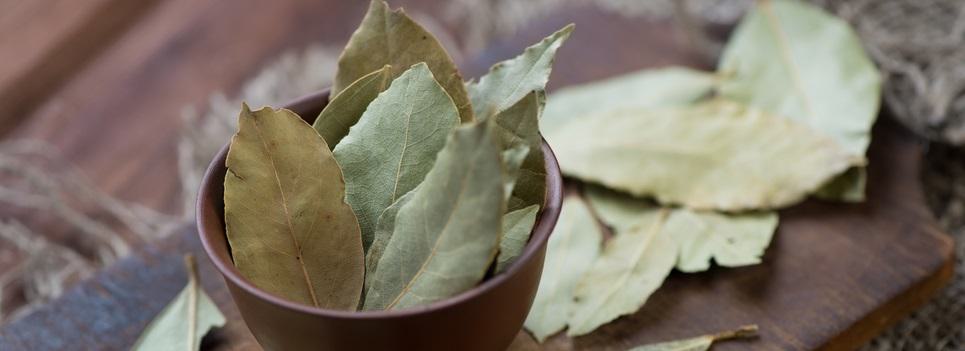 To help keep pests at "bay" store your grains with a bay leaf in the container. Adding a bay leaf to containers of goods like gluten free flour, brown rice, quinoa and cornmeal will help deter any pests from entering. Bay leaves can be used to repel moths, roaches, mice, and flies. What is it about the bay leaves that the pests don't like? The smell! The bitter smell of these leaves has bug-repelling properties that many store-bought formulas can't match.
To help keep pests at "bay" store your grains with a bay leaf in the container. Adding a bay leaf to containers of goods like gluten free flour, brown rice, quinoa and cornmeal will help deter any pests from entering. Bay leaves can be used to repel moths, roaches, mice, and flies. What is it about the bay leaves that the pests don't like? The smell! The bitter smell of these leaves has bug-repelling properties that many store-bought formulas can't match.
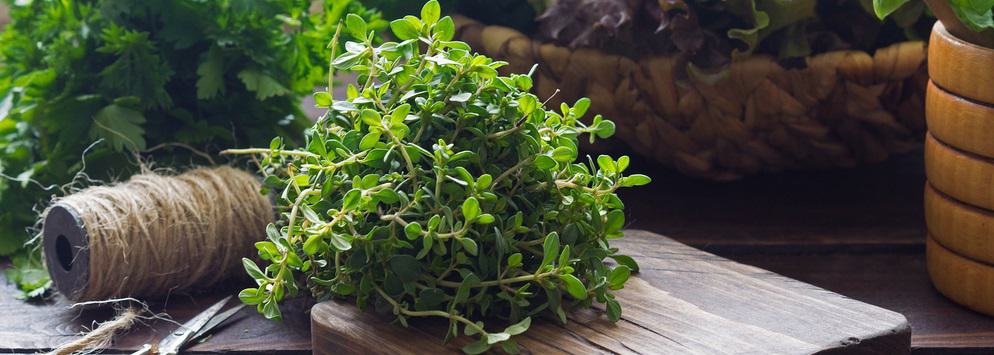 Looking for a way to keep fresh herbs from spoiling? When it comes to fresh herbs, the sooner you use them, the better. However, there are a few tips and tricks you can use to make them last longer. Treating herbs much like you would a bouquet of flowers is a great way to help maintain their freshness.
Looking for a way to keep fresh herbs from spoiling? When it comes to fresh herbs, the sooner you use them, the better. However, there are a few tips and tricks you can use to make them last longer. Treating herbs much like you would a bouquet of flowers is a great way to help maintain their freshness.
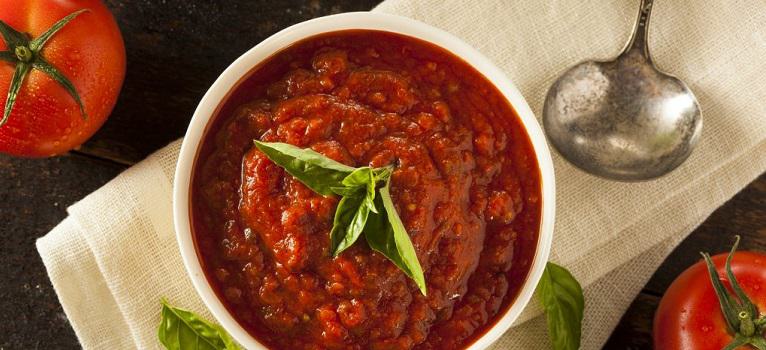 Did you know that depending on how ripe a tomato is, it may need to be stored differently? If you've ever purchased an unripe tomato and placed it in the fridge, then you might have noticed that it took a very long time to ripen. This is because the refrigerator slows down the ripening process. When storing unripened, green tomatoes, it's best to store them in a paper bag with the stems facing down. Doing so will keep them fresh and help them ripen. Fully ripened tomatoes should be stored at room temperature out of direct sunlight. If you notice that one or two of your tomatoes look a bit overripe, then it may be time to put them in the fridgethis will prevent them from ripening more. When adding tomatoes to the fridge it's best to use them as soon as possible. When kept in a refrigerator for too long, tomatoes can lose their flavor as well as essential nutrients.
Use your tomatoes before they go bad in this Quick and Easy Tomato Sauce Recipe!
From vinegar fruit rinse to stocking your pantry with bay leaf, we hope this list of tips on how to keep produce fresh has given you insight on how to keep your food from spoiling before you can eat it. Whether you choose to apply one of these tips or all of them, we're certain that you'll notice a difference in the shelf life of your food! Have a favorite fresh food hack of your own? We'd love to hear about it in the comment below.
Did you know that depending on how ripe a tomato is, it may need to be stored differently? If you've ever purchased an unripe tomato and placed it in the fridge, then you might have noticed that it took a very long time to ripen. This is because the refrigerator slows down the ripening process. When storing unripened, green tomatoes, it's best to store them in a paper bag with the stems facing down. Doing so will keep them fresh and help them ripen. Fully ripened tomatoes should be stored at room temperature out of direct sunlight. If you notice that one or two of your tomatoes look a bit overripe, then it may be time to put them in the fridgethis will prevent them from ripening more. When adding tomatoes to the fridge it's best to use them as soon as possible. When kept in a refrigerator for too long, tomatoes can lose their flavor as well as essential nutrients.
Use your tomatoes before they go bad in this Quick and Easy Tomato Sauce Recipe!
From vinegar fruit rinse to stocking your pantry with bay leaf, we hope this list of tips on how to keep produce fresh has given you insight on how to keep your food from spoiling before you can eat it. Whether you choose to apply one of these tips or all of them, we're certain that you'll notice a difference in the shelf life of your food! Have a favorite fresh food hack of your own? We'd love to hear about it in the comment below.